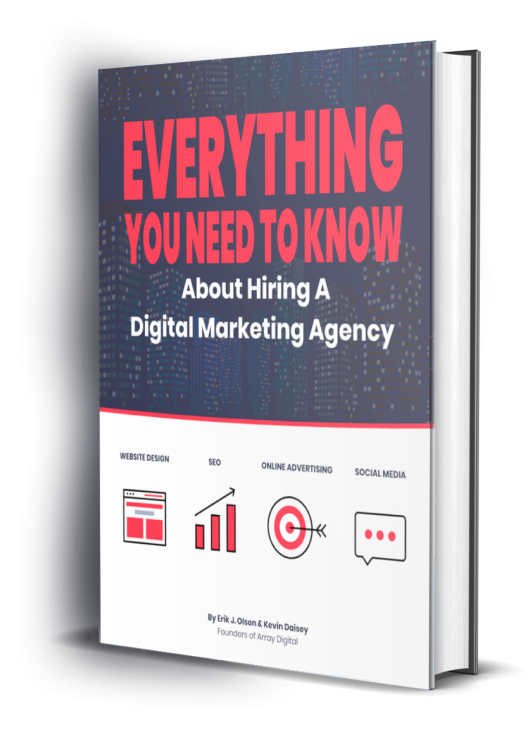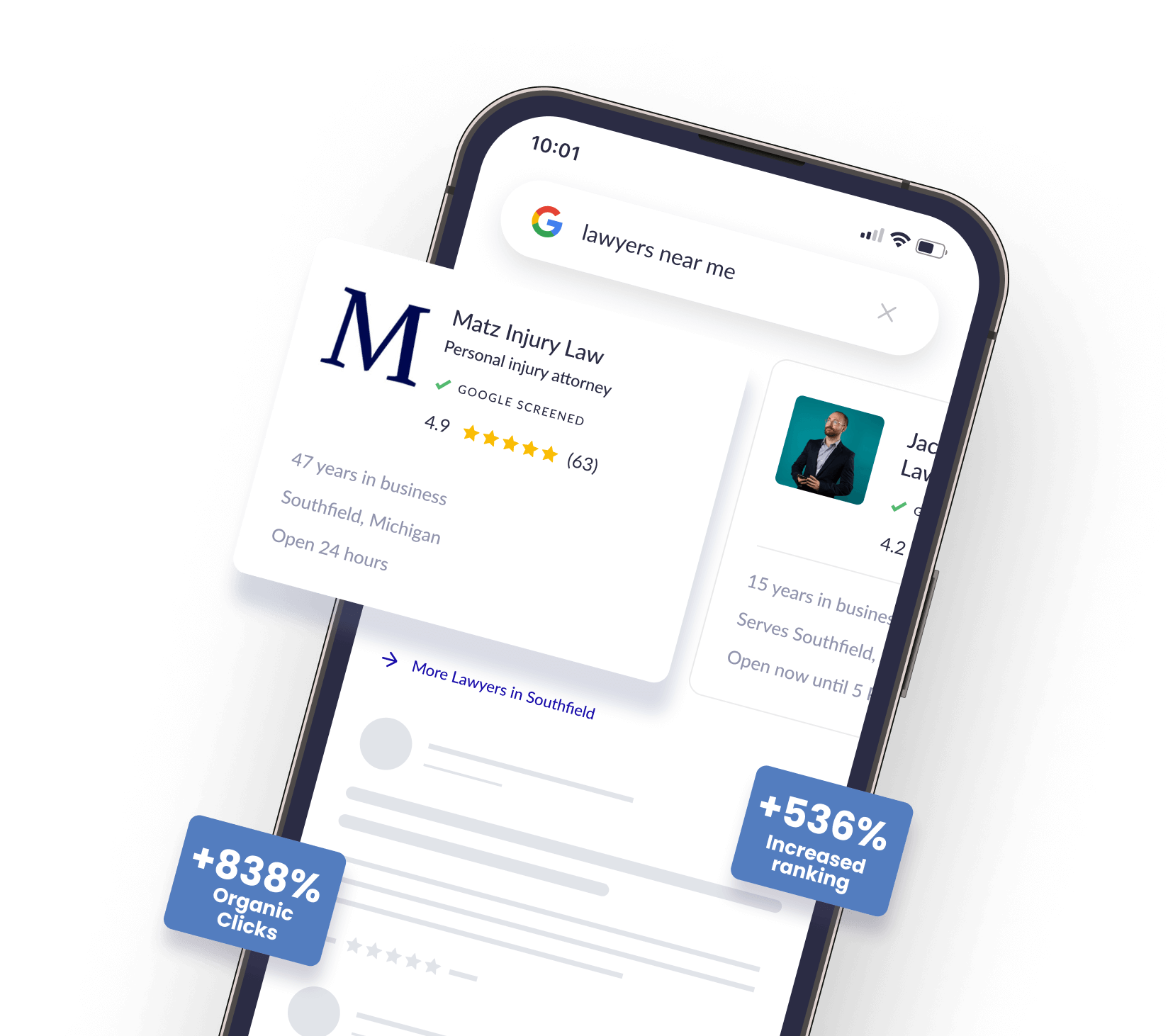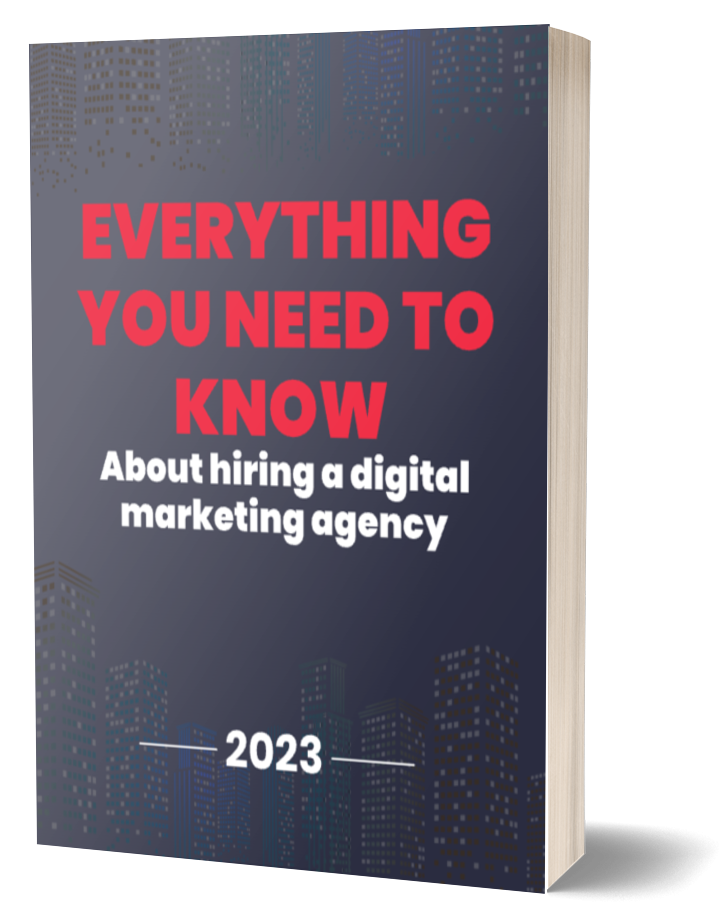Blog
What defines your engaged sessions (bounce rate) in GA4?

Key takeaways:
- A high bounce rate could create a problem for your rankings in the search engines.
- What does a high bounce rate mean, and what can be done about it?
- These ten tips will help you get better results that lead to conversions.
- Array Digital offers the tools and collaborative methods to make it possible.
There is no limitation to the web. What you may not realize is that there are more than 600 million blogs around the globe. As you can imagine, it’s a difficult job to rank among the millions, and even when you do, will users engage with your content?
Today, we are here to discuss why users stay or go (engagement and bounce rate) on your law firm’s website. We’re also going to examine what Google’s algorithm looks for when defining helpful content, so stay tuned.
Google’s Helpful Content Update
Google’s recent Helpful Content Update aims to move more towards a journalist-style blog. This means that if you can provide content that meets the E-E-A-T standard, your content is considered beneficial to the reader and, therefore, should be ranked higher in the search engines.
This update also seeks to de-rank big brands that have no business ranking online for key terms that relate to another sector.
*Example: Why would Buzzfeed populate for the term “personal injury lawyer.” That is so unfair, and Google is working to de-rank issues like this across the web.
The new update also considers local relevance. This means that if you are a great lawyer and other local companies and legal directories talk about you on their websites, the more likely it is for those users to “click-through” and engage with your website.
E-E-A-T, which stands for expertise, experience, authoritativeness, and trustworthiness, is the new benchmark for Google, which is actually super beneficial for local firms that deserve to have clients. But why would someone bounce or leave your website?
You landed here for a reason, so let’s dive into the back end of GA4.
Related article: A lawyer’s guide to E-E-A-T: An introduction
What is the “bounce rate” in Google Analytics?

One factor Google considers when determining whether a website meets those standards is the bounce rate. In short, bounce rate is basically the percentage of people who visit your site but did not exactly engage with it. It’s a “thank you, next” type of situation.
It’s important to note that while bounce rate is a very important metric, Google has sunsetted the term, replacing it in its Google Analytics 4 (GA4) update with “engaged sessions.” Let’s take a look at what this actually means from the standpoint of your law firm’s website.
Low bounce vs. high bounce rate and why user engagement was originally called “bounce”

Bounce rate used to be calculated by how long a user spends on your site, equating to higher quality in Google’s eyes.
As noted, GA4 replaced this with a focus on user engagement. It applies to any e-commerce site, law firm site, or other type of webpage. We are looking at whether users are:
- Scrolling through the page
- Calling the number on the page
- Hopping off the website
- Clicking the link and then clicking the back arrow immediately
GA4’s updated “engaged sessions” no longer penalizes websites if someone stops at your webpage for 15 seconds, finds your law firm phone number, and calls you.
Instead of the previous “thank you, next” situation, we have a “thank you, I called” direct lead, green flagged, increasing your results.
Thanks for that update, Google.
User Engagement Updates in GA4
There are plenty of triggers that GA4 considers to be “user engagement,” and if you do your website right, the Helpful Content Update will green flag your website and up-rank it. Here are some other aspects GA4 considers when a user visits your website:
- Chatting with your chatbox
- Watching a video
- Calling your office
These are the factors that truly matter, and we can track it all on the wide web.
Page view vs. first visit
Now, let’s explore this a little deeper here. One of the factors we need to understand is the difference between page views and visits.
- A page view occurs when the page on your website is loaded or reloaded. It can apply when someone comes to your site from an external page or is already on that webpage.
- A page visit only occurs when a person gets to your site from an external page. This could be from the search engine results page (SERP) or a backlink on another website.
Every page visit is a page view. We need to understand this because it gives us insight into audience behavior and how your pages meet your performance goals.
What is a good new vs. returning visitor ratio?
With tools like Google Analytics, we can break down a great deal of context on what people are doing when they reach your site. One thing we want to consider is whether they are a new visitor or a returning visitor.
Ideally, your returning visitor rate should be between 30-50% of your traffic, though with law firm websites, that rate is often higher. Consider how many times a person needs to seek out information before taking action to contact an attorney. Many people choose to shop around, compare your services and prices with your competitors, and gather more information before they decide who to hire. However, hitting a rate of 50-50 ratio between your returning visitors and your new visitors puts you in a good position.
Returning visitors:
- Become aware of your brand
- Act as loyal customers
- Are more likely to convert into a lead
- Will recommend your site to others
How does video impact GA4 engaged sessions?
People enjoy video. It’s faster, easier, and more engaging than reading a huge block of text. The average human attention span is just 8 seconds (and by contrast, that of a goldfish is 9 seconds). Pretty insane, we know.
That being said, visitors are more likely to stick around when you have videos on your site. Period.
*Consider this: Incorporating video into your website can reduce bounce rate by as much as 34%.
The quality of the video matters. Keep the following in mind:
- Keep videos short.
- Make them engaging.
- Create explainer videos.
- Provide quick or exciting facts.
- Motivate the viewer to want to learn more.
- Skip the sales pitch.
Your site content is a direct link to your engagement rate. Considering all of your marketing efforts, it makes sense to incorporate video on your website since it draws people in and keeps them there.
Related Post: 3 Impressive YouTube Lawyers (& Pro Tips to Up Your Game)
10 surefire ways to make your visitors stay

Now that we have the basics of “bounce rate,” recently coined “engaged sessions,” how do we boost those sessions? Let’s discuss this from a local standpoint since most of our law firms are locally focused.
1. Create geo-specific attorney service pages
Give people what they want on your service pages. A contact form, a touching story, and the services that you provide combined with a FAQ module is our secret sauce. Our strategists actually hold content workshops with our lawyers so that they can talk about their personal stories and incorporate emotion into their marketing.
For attorney websites, that means including individual pages with the above elements for the geo-specific practice areas you would like to target.
* Example: If you have a Georgia divorce attorney practice area page, you should also create an Atlanta divorce attorney page to garner more targeted traffic (i.e., “near me” searches).
2. Tell a personal story
We talked about the secret sauce above. But we want to get more into the “touching story” aspect here. Reddit and Quora have become two of the most popular sites on the web. Why is that?
It’s because people can easily express their emotions to the whole world. Listen, most lawsuits are not pretty, and people want to know they have a great lawyer on their side. We encourage lawyers to tell their stories, and we are ahead of the algorithm. In short, you should hire us; we can help you return to the journalist nature that the Helpful Content Update craves by helping you:
- Share personal stories
- Describe how you have handled specific situations before
- Provide information about how this made you feel
- Discuss the impact of your work on your client
3. Leverage lawsuit data & case studies
Another ranking factor that lawyers have to consider is authoritativeness.
Showcasing how much money you helped your personal injury clients win or outlining a difficult car accident case helps to:
- Demonstrate that you have authority in your field
- Provide a way for people to see that you have experience
- Demonstrate your expertise
- Meet the objectives of the Helpful Content Update
4. Join legal directories
Remember when we talked about local listings? Listing yourself on legal directories will certainly increase your “click-through” and engagement rate.
Law firm directories do help. They create a type of referral tool and add valuable backlinks that Google appreciates. Yet, inferior or spammy versions are not helpful. By speaking to our digital marketing consultants, you’ll avoid using the sites that will lead to negative results.
Related article: Best legal directories (the official 2024 verdict)
5. Create a process to collect Google reviews
Any time you close out a lawsuit or complete an estate plan, ask for a review. Have a specific plan in place to capture your hard work with these reviews:
- Sent out an automatic text that provides a link to your Google Business Profile
- Ask them formally for a review
- Send an email with a link
Timing is everything. The best time to send out a text like this is right after the client leaves your office happy with your service. This is when your client’s energy is the highest from both relief and joy. Capture that in a review.
6. Talk about Supreme Court cases
If you’re a lawyer, you’ve got to be a history buff by default. Why not showcase your knowledge base? Integration of stories that helped shape the American legal system or breaking down the reasons why laws are the way they are can be helpful and interesting.
7. Break down trending lawsuits
Celebrities and big businesses are constantly facing lawsuits. When they relate to your practice area, talk about them.
*Example: Take the keyword “Target lawsuit.” And yes, we are talking about the store with the big red bullseye where you can buy just about anything.
The term is easy to rank for and gets 1,200 searches each month. Data shows that Target customers account for eight out of every ten shoppers.
Touching on cases like this increases your brand visibility because, let’s face it, humans are curious by nature.
Remember, every single page visit shows Google that your site is important and valuable, which will help boost your rankings.
8. Communicate passion in your law firm practice
Write for people, not just the algorithm.
*Example: A DUI lawyer we work with has a very candid, straightforward way of speaking to his clients. It’s a no-nonsense blog that uses profane language in a loving way and directly addresses Michigan DUIs. He encourages readers with DUIs to get their sober a** together and provides tips for ongoing sobriety and personal accountability. That is obviously what his audience wants because he gets over 5K monthly visitors to his site.
Consider what your unique voice is. What passion do you have that you can communicate for your law firm?
9. Evaluate competitors
Type “lawyer near me” into Google now. What do you see? Once you move past the sponsored ads, you see the results for your geographical area. These are your competitors, and your target client is finding them first.
We do not want to replicate the same content they have on their sites. Instead, we want to focus on adding value. We take a non-biased perspective and carefully plan out the design, layout, and content flow.
Then, we work to step ahead of the competition. We provide a way to make your site unique and stand out. That may include a/b testing various styles, using advanced plugins, or improving your call-to-actions.
10. SEO and keyword research is a must
You’re a lawyer, not a layman. You encompass a very small portion of the population that protects the country’s citizens and fights for their rights. The average American citizen is not using the same terminology you are when searching online.
*Your target audience likely has no legal background.
Let’s take the example of the keyword “simple will.” This is not an actual legal term. Yet, users search this term about 1,800 times each month. We need to include terms like this in your content — even if they are not technically correct —we need people to find you where they are at (a non-legal standpoint).
Related article: Examples of good SEO keywords for attorneys
Why law firms partner with Array Digital
Metrics are important, but our goal as your digital marketing company is to create a unique experience that helps your brand stand out while also pulling in the leads you need from the search engines. We do it all, from optimizing page speed to monitoring universal analytics, in order to build up a successful website for you.
Better yet, we listen to our clients and then create custom strategies for them.
Testimonials
“Array Digital has built an awesome website for our law firm and has used SEO to move us to the top of the page on Google. Two of our most recent settlements were for clients who found us on Google, which is a direct result of the great work Array Digital has done for us. They are true professionals who know their stuff!” – James K.
Our content workshop process for law firms
Decreasing your site’s bounce rate and getting people to stay on your page longer is our goal. To do that, it takes time and collaboration.
At Array Digital, we work hand-in-hand with our clients. In our content workshops, we handle a complex number of processes to meet their needs:
- We research data and pull analytics to develop topics.
- We handle the keyword ideation process.
- We meet with our lawyers frequently to allow them to tell their stories and share their expertise and history on the topic.
- We combine this information with keyword data to create incredible content that satisfies your readers and aligns with Google’s Helpful Content update.
Array Digital is a very collaborative agency. We learn as much as we can about our clients so we can support them.
We’re not just a vendor; we’re a business partner.
Increase scroll time and generate more leads
Put Array Digital to work and experience results now. Call 757-333-3021 or fill out our contact form to schedule a consultation.
Frequently Asked Questions
In our experience, about 50% of traffic comes from mobile devices. Mobile users must be considered in developing your website.
Factors like keyword use, meta descriptions, pop-ups, and page load time can all impact how engaged your readers are, impacting your engaged sessions. In other words, we need to consider all of these factors to create a cohesive, aligned plan. Really consider the user experience on your site.
- Do your meta descriptions entice readers to click?
- Do your pages load quickly?
- Do you have a chatbox to capture readers in need of legal help?
Though this depends on various factors, the average bounce rate for most sites ranges from 25-70%. We want to keep that exit rate as low as possible.

Everything you need to know about hiring a digital marketing agency:
- The four pillars of digital marketing
- Digital marketing options and costs
- The pitfalls to avoid
- What to expect when working with an agency
- The qualities to look for in a digital marketing agency

Extraordinary Results
-
“Erik and the Array Digital team are top notch in the digital marketing spaces, particularly for SEO. Their understanding of Google, the algorithms, and the work involved to get websites ranking on the first page is unparalleled. Thank you Erik!!”
Andrew ZihmerZihmer Law Firm -
“I had a chance to consult with Kevin Daisey for my law firm’s marketing needs. He is knowledgeable, kind, and helpful. He provided me with a great marketing analysis. He also invited me to their podcast as a guest speaker. Thank you Array Digital!”
Merve KatiZMK Law -
“The legal profession needs more architects and designers…folks who are thinking about the future of the profession and who are assembling a tribe of like minded lawyer leaders. Erik and his team are certainly ‘that’.”
Ben GlassBen Glass Law & Great Legal Marketing







